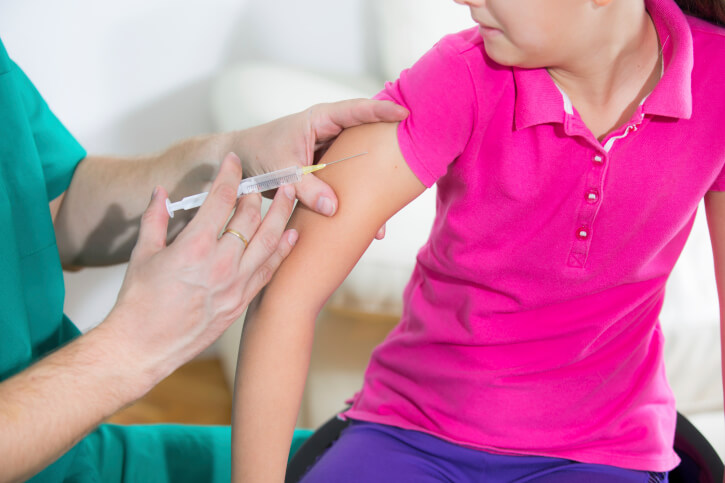
Who Should Get the HPV Vaccination?
There are actually three vaccines currently available to prevent the spread of the human papillomavirus (HPV), which causes most cervical cancers as well as other cancer types. The HPV vaccine is given as a series, in three separate shots over a span of 6 months. More and more people are being vaccinated against HPV since the introduction of the vaccine in 2006, and in 2013 the CDC announced that since that time the prevalence of HPV decreased by 56 percent among teenagers. However, there is still some debate over who should get the series and when. Here’s a closer look at current recommendations for the administration of this important vaccine.
Why the HPV Vaccination Is Recommended
The upshot is, the HPV vaccine protects against the spread of genital HPV, a common virus that is passed from one person to another through direct skin-to-skin contact during sexual activity. There are actually 40 different types of HPV that can infect both men and women, and not all produce the telltale genital warts commonly associated with this virus. Therefore, a person can contract HPV and not even know it, and in fact experts believe that most sexually active people will contract HPV at some time in their lives.
Interestingly, most HPV types cause no symptoms and simply go away on their own. Then you have the wart-producing types, which while emotionally distressing and uncomfortable, are not life threatening in and of themselves. What’s concerning about HPV is the other virus types: those that can cause cervical cancer in women and less common cancers in both men and women, including cancers of the anus, penis, vagina, vulva, and oropharynx.
HPV Vaccine for Girls
According to the CDC, every year around 12,000 women are diagnosed with cervical cancer in the United States and 4,000 die from this disease. This is the main reason why the push for HPV vaccination has been so strong. The HPV vaccine is recommended optimally for 11 and 12 year old girls (although it can be give beginning at 9 years old). It is also recommended for girls and women between the ages of 13 through 26 years of age, though the general rule of thumb is that the earlier it’s given the better.
Why Early Vaccination Is So Important
The bottom line is, the HPV vaccines that are available to date only work in people who have not already been exposed to HPV virus. If exposure to a type of HPV has already occurred, that the vaccine will not prevent HPV transmission. However, this does not mean that sexually active girls and women within the age framework should not receive the vaccine. Few sexually active women are going to be infected with all HPV types that are prevented in the vaccine, so there is still benefit from getting the series.
HPV Vaccine for Boys
So far, the debate has been mixed as to whether the HPV vaccine should also be given to boys. Although males cannot develop HPV-linked cervical cancer, they represent half of the population responsible for spreading it in the first case. In addition, a new study released in the New England Journal of Medicine in the early months of 2015 revealed that the HPV virus is also a leading cause of throat cancer (which strikes 11,000 American men and women each year)—which means that boys are at risk after all. HPV is also a major case of anal cancer and genital warts, which can affect males. And finally, the potential link between the virus and cancers of the penis also provides another compelling argument for vaccination.
The current recommendation for boys is to be vaccinated (like girls) at 11 or 12 years of age, with vaccination recommended as well for males aged 13 through 21. However, the time frame is the same for females (between 9 and 26 years old).
It’s important to note that HPV vaccine currently does not protect against all HPV types and thus does not eliminate the risk of cervical cancer, though that risk is greatly reduced. Therefore, it’s important for women who have received the vaccine to continue with regular cervical cancer screenings according to current guidelines.
This article is for informational purposes only and is not meant to replace professional medical advice. If you have any questions or concerns, see your medical doctor.